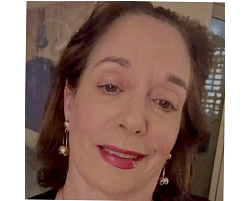Communication Challenges When Your Industry is in 24x7 Disruption
Building Differentiation in Financial Services When Nothing Stays the Same for Very Long
Tracey Gordon, Managing Partner, TargetPositioningThere was a time - actually not that long ago - when financial firms were able to introduce new ideas and quickly solidify first-to-market brand awareness before others emulated the success. Think of index funds, ETFs, online investing and most recently Robo-advisors.Often, the first to market with the idea gets to define the space, to brand it – Vanguard, iShares, Schwab, Betterment.But, very soon for all these ideas, competition came quickly. The battle for customers and assets was so strong that soon an assault on the idea and its originator began. And then, very soon everyone was doing it!Today, the path from market introduction to emulation is happening faster and more furiously than ever before. For many firms there is the frustration of introducing a differentiated product and then watch an early edge quickly disappear as duplication begins. Frustrating and very challenging from a business, marketing and media messaging standpoint. The luxury of building a sustainable idea-ownership brand has gone.But there is a positive. Sure, you may lose your introduction cachet, but the momentum for growth is so powerful that asset accumulation can be staggering and compensating. It’s no longer just a product or idea, but an entire market segment with potentially trillions of dollars. Robo-advisors, introduced just a decade ago, are now closing in on $1 trillion in assets.When the numbers are that large and the potential so great, something else happens.It’s not exclusive to financial services, but occurs across all industries when new, very popular ideas come to market.With so much at stake, a very expensive messaging differentiation battle begins. Competitors – established firms and newcomers from the fintech world -- don’t sit idly by but quickly come to market with their versions. Naturally, the idea originator doesn’t want to relinquish what its built, so very quickly billions are being spent across every channel that reaches a potential customer – sales, advertising, marketing, public relations, and social media.Over the years, communicators have helped create many memorable and innovative campaigns. Historically, implementation had the luxury of time, months, even years to build a new business. But the days when companies could adjust in a methodical way with all units aligned to think, develop plans, rethink plans, and finally act have gone.Now, with change happening so rapidly, from so many different sides and impacting huge swaths of the industry, rapid response is no longer reserved for crises, but becomes mainstream strategy for communication professionals.Those who are narrow industry experts, say focusing on just the fund industry, financial advisors, blockchain/crypto, insurance etc., now have to be experts on everything as entire segments build for a still open future. Additionally, if they aren’t experts on how technology is changing the entire financial services space they’ll be left out of a significant part of the conversation. Communicators must also understand the macro impact on the industry – that it is splintering, restructuring, merging and re-emerging in ways that are new and very, very different than ever before.The most important thing for any communicator to understand is that they have to go deep into the changes and their impact. What’s happening is complex and as always knowledge and insights ahead of everyone else still gets that early seat at the table. It’s just not effective for the media strategists to be brought in at the end of the planning. The very best are industry and trend experts first and foremost. They have broad business knowledge. They are anticipators, differentiation and visibility building experts. They don’t wait until a 6:00 am tweet to react to a competitor’s new assault. Today, communicators are the eyes and ears for business and that seat at the table is crucial for any company looking to succeed in a rapidly shifting world.
 About the Author: Tracey Gordon became one of the most sought-after financial communication strategists building competitive media campaigns for Fidelity, Morgan Stanley, Charles Schwab and ING. Today, through www.targetpositioning.com, she works with both new FinTech disruptors and established brands looking to rise above the competition in an industry that is growing rapidly, but where market differentiation is becoming increasingly more challenging.
About the Author: Tracey Gordon became one of the most sought-after financial communication strategists building competitive media campaigns for Fidelity, Morgan Stanley, Charles Schwab and ING. Today, through www.targetpositioning.com, she works with both new FinTech disruptors and established brands looking to rise above the competition in an industry that is growing rapidly, but where market differentiation is becoming increasingly more challenging.

